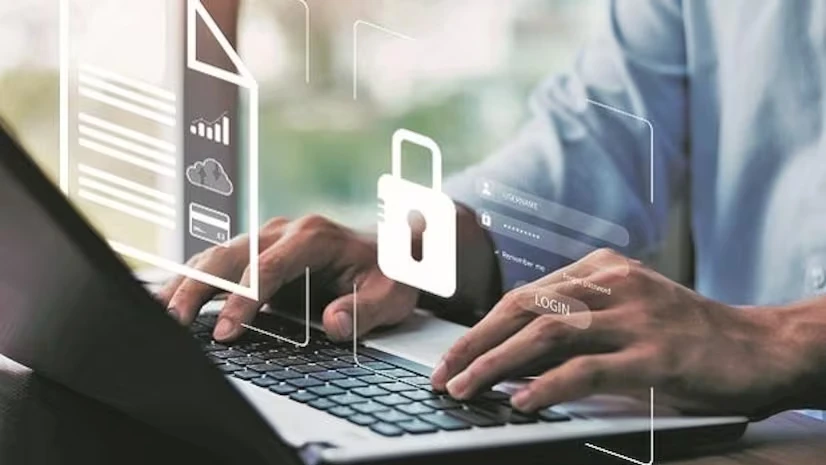In today’s tech-driven world, protecting personal data has become a critical concern, especially in the tech resale industry. As we explore the ever-evolving landscape of restaurant tech trends, it is crucial to prioritize cybersecurity and ensure the safeguarding of customer data.
Cybercriminals are constantly refining their methods to exploit sensitive information, making it essential for businesses to understand the risks and challenges associated with securing personal data in tech resale. This article delves into the significance of implementing robust security measures, following best practices, and staying compliant with data privacy regulations to protect customer information.
By gaining insights into these vital aspects, we aim to equip you with the knowledge necessary to navigate the dynamic realm of restaurant tech resale and safeguard personal data.
Key Takeaways
- Tech resale involves various devices with personal data, including financial records, personal photos, login credentials, and health information.
- Measures such as thorough data wiping, encryption, and working with reputable resellers are important for securing personal data in tech resale.
- Common cybersecurity risks in the tech resale industry include malware and viruses on used devices, data breaches, inadequate data sanitization practices, and phishing attacks.
- Best practices for protecting customer data in tech resale include encryption, keeping software and devices up to date, implementing strict password policies and multi-factor authentication, providing cybersecurity training to employees, and regularly backing up customer data.
The Importance of Securing Personal Data in Tech Resale
Securing personal data in tech resale is of utmost importance in order to protect sensitive information from falling into the wrong hands. In today’s digital age, where data breaches and cyber attacks are becoming increasingly common, individuals and businesses must take proactive measures to safeguard personal data during tech resale transactions.
When it comes to tech resale, personal data can be stored on various devices, such as smartphones, laptops, and tablets. This data can include sensitive information like financial records, personal photos, login credentials, and even health information. If not properly secured, this data can be exploited by malicious actors for identity theft, fraud, or other nefarious purposes.
To ensure the security of personal data in tech resale, several measures can be implemented. Firstly, it is crucial to thoroughly wipe all personal data from the device before selling or transferring ownership. This can be achieved by performing a factory reset or using specialized data erasure tools. Additionally, encrypting personal data can provide an added layer of protection, making it difficult for unauthorized individuals to access or decipher the information.
Furthermore, it is essential to choose reputable and trustworthy channels for tech resale. Working with reputable resellers or platforms that prioritize data security can help mitigate the risks associated with personal data exposure. These entities often have strict data protection protocols in place to safeguard customer information.
Common Cybersecurity Risks in the Tech Resale Industry
The tech resale industry faces numerous cybersecurity risks that can compromise the security of personal data. These risks stem from various sources and can have severe consequences for both businesses and their customers.
One common cybersecurity risk in the tech resale industry is the presence of malware and viruses on used devices. When customers purchase pre-owned devices, they may unknowingly expose themselves to malware that can steal their personal information or compromise their online security.
Another risk is data breaches, where unauthorized individuals gain access to sensitive customer data stored by tech resale companies. This can lead to identity theft, financial fraud, and other forms of cybercrime.
Additionally, inadequate data sanitization practices can pose a risk, as personal information may still be accessible on devices that have been sold or recycled.
Lastly, phishing attacks targeting tech resale companies can result in the theft of employee credentials and the subsequent unauthorized access to customer data.
To mitigate these risks, tech resale businesses must prioritize strong cybersecurity measures, such as regular software updates, comprehensive data sanitization techniques, and employee training on identifying and avoiding phishing attempts. By doing so, they can ensure the security and privacy of their customers’ personal data.

Best Practices for Protecting Customer Data in Tech Resale
Implementing robust cybersecurity measures is crucial for safeguarding customer data in the tech resale industry. With the increasing amount of personal information being stored and shared online, it is essential for businesses to prioritize the protection of customer data. Here are some best practices that can help ensure the security of customer data in tech resale:
- Encryption: Utilize encryption techniques to secure sensitive customer information. This involves converting data into a code that can only be deciphered with an encryption key. By encrypting customer data, even if it is intercepted or accessed unlawfully, it will be unreadable and useless to unauthorized individuals.
- Regular Updates and Patches: Keep all software, systems, and devices up to date with the latest security patches. Regularly updating software and firmware helps to address any vulnerabilities that may be exploited by hackers.
- Strong Password Policies: Implement strict password policies for all employees and customers. Encourage the use of strong, unique passwords and enable multi-factor authentication whenever possible. This adds an extra layer of security to protect against unauthorized access.
- Employee Training: Provide comprehensive training to employees on cybersecurity best practices. Educate them about the importance of protecting customer data and teach them how to identify and respond to potential security threats.
- Data Backups: Regularly backup customer data to a secure location. In the event of a security breach or system failure, having recent backups ensures that customer data can be restored without being permanently lost.
Implementing Robust Security Measures in Tech Resale Operations
To ensure the utmost security of customer data in tech resale operations, it is imperative to establish and implement robust security measures. With the increasing prevalence of cyber threats and the potential for data breaches, it is essential for tech resale businesses to prioritize the protection of personal information. Implementing a comprehensive security framework is crucial to safeguard customer data and maintain their trust.
One of the first steps in implementing robust security measures is to conduct a thorough risk assessment. This involves identifying potential vulnerabilities and assessing the likelihood and impact of various threats. By understanding the specific risks faced by the tech resale operation, appropriate security controls can be put in place.
Encryption is another important security measure that should be implemented. By encrypting sensitive data, even if it is intercepted, it will be unreadable and useless to unauthorized individuals. This ensures that customer data remains protected, both during transmission and storage.
Regular monitoring and auditing of systems is also essential to detect any potential security breaches or unauthorized access. By implementing intrusion detection systems, conducting regular vulnerability scans, and analyzing system logs, any suspicious activities can be identified and addressed promptly.
Lastly, employee training and awareness programs should be implemented to ensure that all staff members are knowledgeable about security best practices and understand their role in protecting customer data. This includes educating employees on the importance of strong passwords, safe browsing habits, and the proper handling of sensitive information.
Staying Compliant With Data Privacy Regulations in Tech Resale
In order to ensure compliance with data privacy regulations in the tech resale industry, it is imperative for businesses to establish a robust framework that prioritizes the protection of customer information. By adhering to these regulations, companies can not only avoid hefty fines and legal repercussions but also gain the trust and loyalty of their customers.
Here are some key strategies for staying compliant with data privacy regulations in tech resale:
- Conduct regular audits: Regularly review and assess your data privacy practices to identify any potential vulnerabilities or areas of non-compliance. This will help you stay ahead of any changes in regulations and ensure that your procedures are up to date.
- Implement strong data protection measures: Utilize encryption techniques, secure storage systems, and access controls to safeguard customer data. This includes implementing multi-factor authentication, firewalls, and intrusion detection systems to prevent unauthorized access.
- Provide employee training: Educate your staff on data privacy regulations, best practices, and the importance of safeguarding customer information. This will ensure that everyone in your organization understands their role in protecting data privacy and can identify and report any potential breaches.
Frequently Asked Questions
How Can I Ensure That Personal Data Is Securely Protected When Buying or Selling Used Tech Products?
To ensure the secure protection of personal data when buying or selling used tech products, it is crucial to follow best practices such as performing a thorough data wipe, using encryption, and verifying the reputation and security measures of the seller.
What Are Some Common Mistakes That Businesses in the Tech Resale Industry Make When It Comes to Cybersecurity?
Common mistakes made by businesses in the tech resale industry regarding cybersecurity include inadequate data encryption, lack of employee training, failure to regularly update software and hardware, and insufficient network security measures.
Are There Any Specific Technologies or Tools That Can Help Enhance Data Security in Tech Resale?
There are several technologies and tools that can enhance data security in tech resale. These include encryption software, secure cloud storage solutions, multi-factor authentication, and regular security audits to identify vulnerabilities and address them promptly.
What Are the Potential Consequences for Businesses in the Tech Resale Industry if They Fail to Adequately Protect Customer Data?
Businesses in the tech resale industry may face severe consequences if they fail to adequately protect customer data. These consequences can include reputational damage, legal liabilities, financial penalties, and loss of customer trust and loyalty. It is crucial for businesses to prioritize data security to mitigate these risks.
How Can Businesses Stay up to Date With the Latest Data Privacy Regulations in the Tech Resale Industry?
Businesses in the tech resale industry can stay up to date with the latest data privacy regulations by regularly monitoring industry news and updates, participating in relevant conferences and workshops, and seeking guidance from legal and cybersecurity experts.
Conclusion
In conclusion, securing personal data in the tech resale industry, particularly within the restaurant sector, is of utmost importance in today’s digital age. With the constant advancements in technology, cybercriminals are continually finding new ways to access and exploit sensitive customer information. By implementing robust cybersecurity measures and staying compliant with data privacy regulations, restaurant owners and tech resellers can effectively protect customer data and maintain trust. It is crucial to understand the common cybersecurity risks and best practices in order to navigate the cybersecurity menu for customer data protection.
You may also like to read:
Secrets to Restaurant Entrepreneur’s Wellness: Personalized Chiropractic Healing


